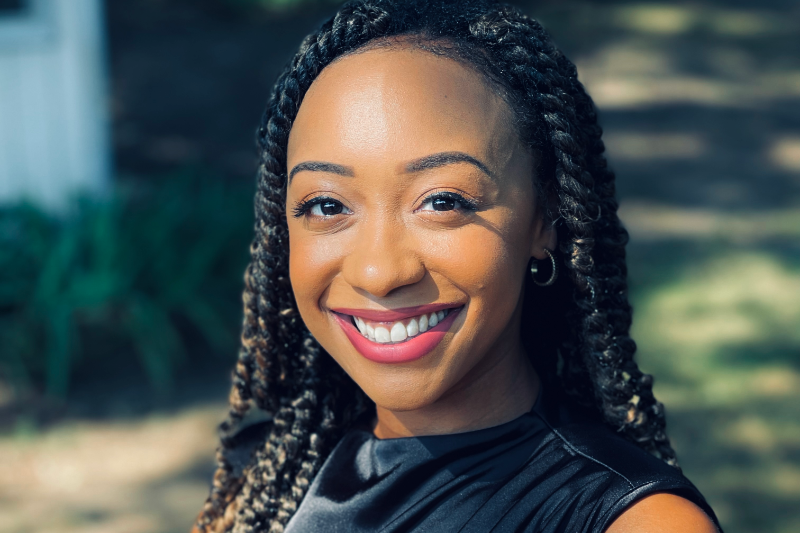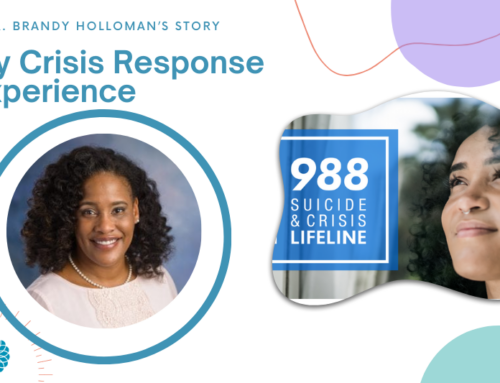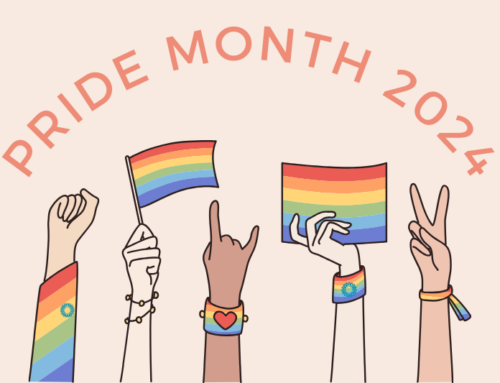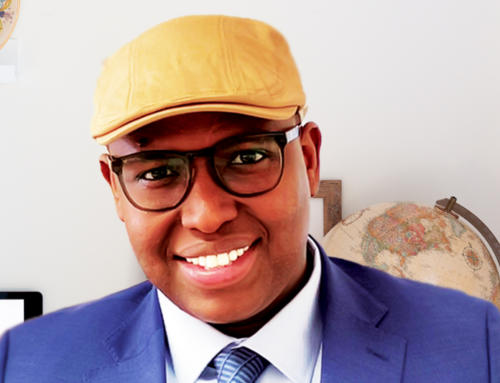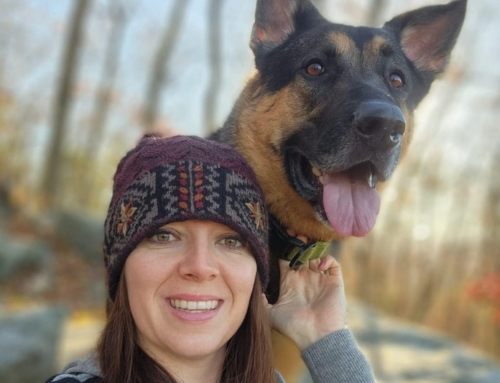Well-versed in research across the private, governmental, and nonprofit sectors, Christina Davis has a broad range of qualitative and quantitative expertise. Despite the breadth of each of her professional experiences, however, each has been unified by her passion for equity work. Change Matrix (CM) is thrilled to bring Christina on board as a team member and work alongside her to further projects and initiatives that center equity at their core. Read on to learn about her previous evaluation projects, advocacy work, and why joining CM was for Christina the perfect blend of her personal and professional goals.
What drew you to CM?
What interested me most was the diversity of projects that are all focused on equity and addressing the issues in the community. I was drawn to the wide range of local and national equity projects that CM is involved in. I love the opportunity to be hands-on and make a difference and see the results of the research I’m performing, so I was really excited to see how active they were in addressing important issues within the community.
What is your role at CM?
I work as a change consultant and I perform program evaluation and project management for Healthy Food for Denver’s Kids. I am also supporting research for the national Expanding the Bench® Leaders in Equitable Evaluation and Diversity initiative, Colorado Equity Compass, and Community Partnerships for Health Equity. I was always interested in being involved in evaluation, and I have performed program evaluations in the past during my MPA program where I worked with Big Brothers Big Sisters and helped to lead evaluations assessing the We Read to Succeed program they were working on and getting support from United Way, where I interned the previous summer. A lot of what we did was evaluating the responses of parents and students on how they were performing and trying to find opportunities for the Bigs to connect with the Littles and continue that on with reading at home. So I was excited to work on that program from start to finish and perform some of the data analysis in SPSS; we then helped with grant writing for a proposal for future funding for them. I was really active and felt like I was making a difference in my community, and that’s where I was most passionate.
I’ve also worked on different research projects with qualitative and quantitative analysis, working with National Student Clearinghouse on custom research in SAS and their post-secondary data partnership, supporting market research and custom research on the racial justice protests and COVID-19 while at Luth Research, and work with SRI International supporting the National Science Foundation Science and Engineering Indicators report. While I was working with SRI International, I did a lot of work with NSF and helped to host workshops that talked about different things going on in the science and engineering field. We helped with their Women, Minorities, and Persons with Disabilities report, and analyzed data on marginalized groups and presented on issues of opportunity and disparities in certain areas. It was exciting to work on projects that were important to me and really touched on topics that I was passionate about.
Before graduating college, I worked at the Center for Multicultural Student Services (CMSS) at James Madison University and it just excited me to facilitate workshops, discussions, presentations, and campus-wide events to really educate people about all ranges of diversity. It could be on race and ethnicity, gender identity, sexual orientation, we’d go the broad range and talk about religion and politics, etc. So there was nothing off the table, and I loved the idea that CM is an open environment and you can really feel comfortable talking to each other and having honest conversations about equity and racial and social justice. It’s usually taboo, honestly, in the workplace. And sometimes people in organizations will try to introduce discussions, but it can be divisive to have conversations that get in-depth about the real issues that go on within communities because the deeper you dig, the more people feel uncomfortable. But I like that CM isn’t afraid to get uncomfortable because that’s where the real change happens. CM was a real merger of personal and professional [passions] in terms of my skills.
Why did an equity-focused role call to you?
I got my undergrad degree in intelligence analysis, which was really focused on cybersecurity research and business intelligence and there wasn’t a lot of range to expand beyond that. But I was also really passionate about the work that I was doing with CMSS at the time — advocacy and having conversations and facilitating workshops to educate people on diversity. I was also supporting equity and advocacy events in my hometown at the Northern Virginia Urban League Guild, but my academic research and my personal interests weren’t really merging in terms of what I wanted to do. I was able to do a little bit more of it as my career progressed, but I think the biggest transition was my MPA program and getting that hands-on experience in program evaluation with nonprofits. Doing that really allowed me to see that this is why I want to go forward in getting a degree that will expand me beyond intelligence work with the government. Now, after having had those experiences in government and cybersecurity research, market research, education, and evaluation, I found that program evaluation and equity-based work is my true passion and calling.
What unique skill do you think sets you apart from others?
I think for me, part of it is the range of experiences I’ve had. They’re all so different, but they each use the same baseline skillset. Whether you’re doing qualitative or quantitative work, it’s all research, but it could be analyzing very different things. I think it’s opened up my perspective to many different audiences and the way that they perceive information — especially equity information. Whether you’re talking to a government client or talking to someone in the private or nonprofit sector, you may get very different responses, and it gives you an idea of how comfortable people are with having those conversations and how educated people are sometimes in their spaces. It’s exciting to work in a place where I can now have those conversations every day. Having had that wide range of experience, I would like to be more of an integrator to create a space that allows people to address hard issues but where they can also feel comfortable asking questions and sharing their personal experience and opinions. I want to make spaces where people can feel comfortable listening and learning. People who might not be open-minded in other circumstances can really be open to learning about other cultures in safe spaces, when you can ask questions you’d otherwise be afraid to ask — that’s what I learned when I was working at CMSS. Sometimes people are genuinely curious about a sensitive topic and open to learning, but they’re afraid to say the wrong thing, so they say nothing. And I’m glad that we have those difficult conversations at CM and host webinars to discuss important issues. I’m excited to be involved with discussions on equity and I think that I would be a great integrator to help facilitate that.
Which project or assignment are you most excited about?
I’m excited about my work with HFDK and the various projects under the initiative, and I’m also really excited that I’ve learned about CREE, culturally responsive and equitable evaluation, within the Expanding the Bench® initiative. I’m looking forward to getting more hands-on with some of the work that they’re doing. I’m interested in all things equity. There’s no cap to it. I like the things we’re doing with national programs, and I’d love if at some point there was an evaluation opportunity within my local community that would be a match for CM so that we could do a merger there and find future opportunities as well. Anything that really gets hands-on and makes a difference in the community gets me excited.
